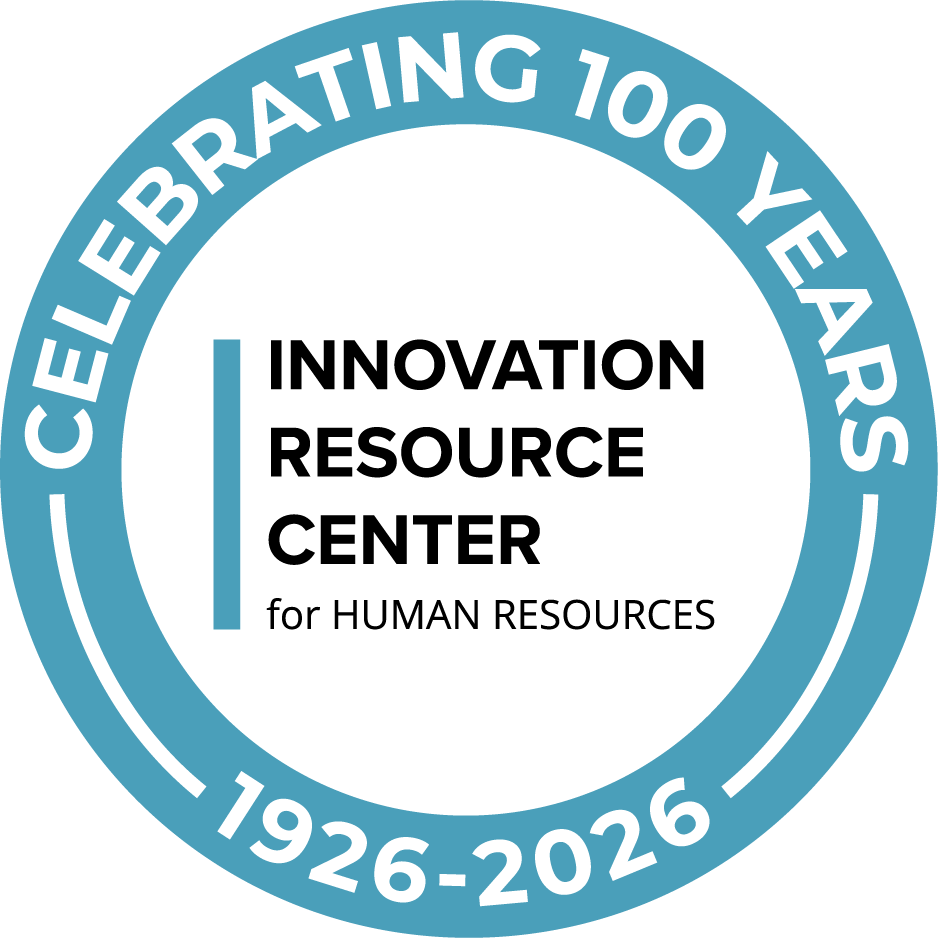In preparation for IRC’s 75th anniversary in 2001, I spent many hours in the Rockefeller Library in Pocantico Hills, New York, in an attempt to better understand our founder, John D. Rockefeller Jr., and his accomplishments. I was amazed at the notes and speeches filed there—with audiences ranging from small church groups to great gatherings of politicians and scholars. Throughout the nation, Rockefeller sought to enlist others’ interest in the discovery of the importance of work relations.
Among Rockefeller’s many actions was the establishment in 1926 of Industrial Relations Counselors, Inc.—renamed Innovation Resource Center for Human Resources (IRC4HR) in
2015 —as a nonprofit research and educational organization to “advance the knowledge and practice of human relations” in the workplace. He also established six university-based Industrial Relations Centers—first at Princeton, and later at MIT, University of Michigan, Stanford, and Cal Tech in the United States and at Queens University in Canada. Some years later, IRC, based on its
own resources, established a graduate scholarship program at each of these six centers; the C.J. Hicks Scholarships support graduate studies by qualifying students, named for Rockefeller’s longtime human resources aide who also served as chairperson for the IRC board of trustees.
Of course, neither John D. Rockefeller Jr. nor the organizations he sponsored had a magic formula to solve work-related problems. But what he did advance was the idea that systematic studies of issues between management and workers could lead to the development of better work relations. This memoir is dedicated to the work of IRC, the organization I led over a 40- year period, where our staff did everything possible to follow the path that Rockefeller laid out.
Following Rockefeller’s example, IRC (and Organization Resources Counselors, Inc. [ORC], when it was formed in 1970) was guided by six principles to ensure that positive and progressive employee relations would emerge from its research and advisory activities:
- Management should demonstrate dedication to the long-term development and maintenance of positive relationships based on effective organizational strategies, as well as sound human resource and employee relations policies and practices.
- Management decision-making should not be based on authority but on clear business needs and interests enabling workers and managers to join together to achieve operating goals.
- Decision-making should be based on facts critical to the operational and behavioral character of the organization.
- Management should use confidential interviews with employees at all levels to gain a full and complete understanding of each organization’s operating profile and human relationship issues.
- Management should have an understanding at the outset of the need for top management to demonstrate its full support for the conduct of the research.
- Management should provide confidence that IRC/ORC staff assigned to company research are people with the highest competence and discretion.
In 1967, I was elected to lead both of these organizations. These six principles directly and indirectly guided all of our work and served us well in studies at every level of client organizations, from relations at the board level to the plant floor. They required us to develop many scenarios when working for company managers so that we communicated the importance of how we operated and how that ensured we could give management, and often its employees, meaningful and actionable suggestions and reports to improve and guide their relationships.
(Image courtesy of the Library of Congress)

